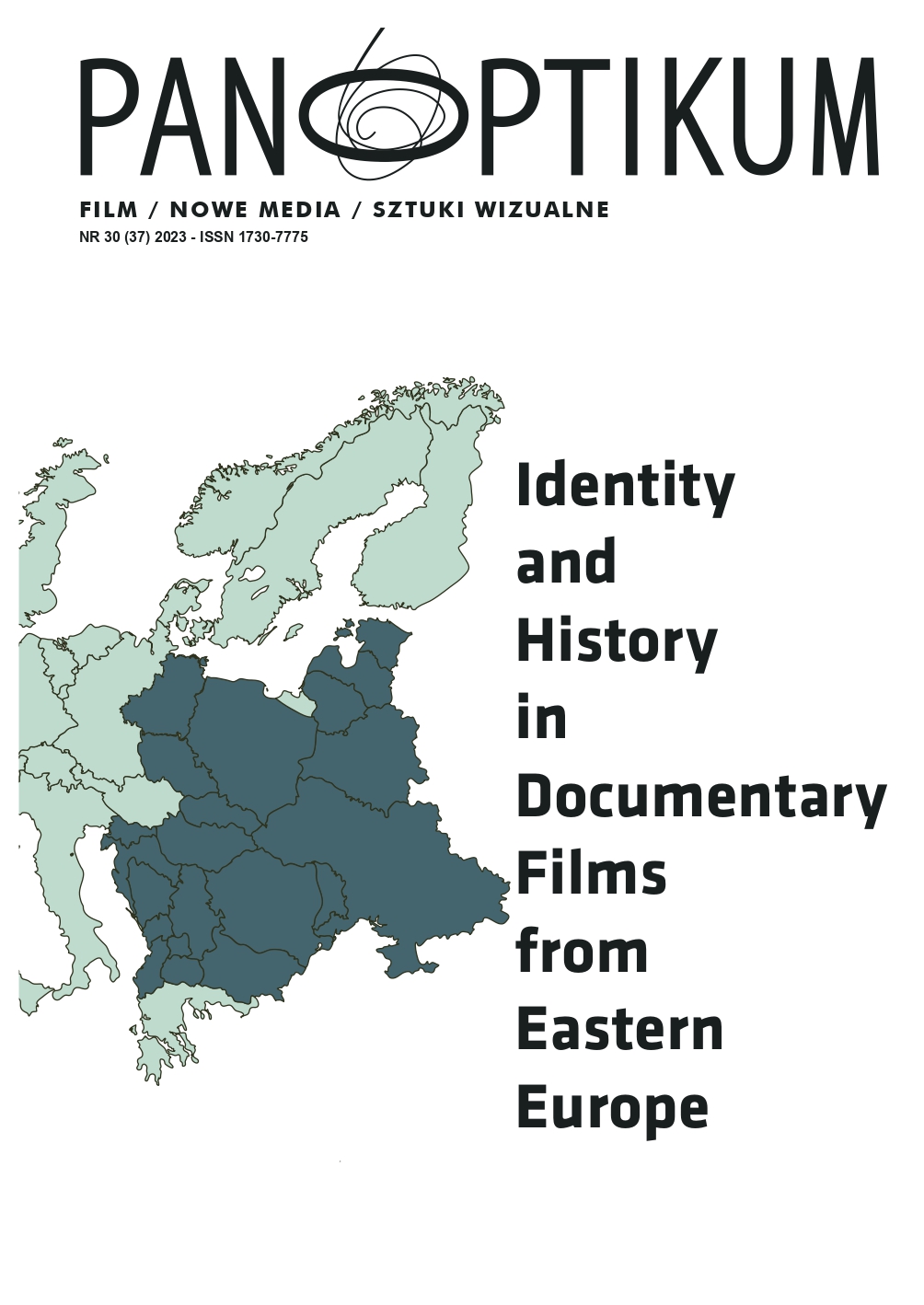Documentary Films About Polish Transformation from State Socialism to Capitalism
DOI:
https://doi.org/10.26881/pan.2023.30.04Słowa kluczowe:
Polish documentary cinema, political transformation, films about migration, Maria Zmarz-KoczanowiczAbstrakt
This article discusses Polish documentary films made after the fall of the Iron Curtain in 1989, till 2005. I focus on films concerning class issues, not least because the changes which happened in 1989 were as political as they were economic in their character, leading to creating a distinct class stratification: winners and losers. I examine here films made in the 1990s till the mid-2000s, as it can be argued that after this period, the transformation was completed. I focus on films concerning labour and labour relations, as this was the part of life which changed most after the fall of state socialism and affected ordinary people most profoundly, and class issues, more broadly. I am particularly interested in how the changes of the 1990s affected individual and group identities of Poles, especially identities pertaining to age, education and place of living.
Downloads
Bibliografia
Agamben, G. (1998). Homo Sacer: Sovereign Power and Bare Life, trans. Daniel HellerRoazen. Stanford: Stanford University Press.
Coates, P. (2008). Ideologie sacrum i profanum: “Europa” oraz “wieś i miasto” w kinie polskim po 1989 roku, in: K. Klejsa and E. Nurczyńska-Fidelska (ed.), Kino polskie: Reinterpretacje. Historia-Ideologia-Polityka. Kraków: Rabid, pp. 287-95.
Groys, B. (1992). The Total Art of Stalinism: Avant-Garde, Aesthetic Dictatorship, and Beyond, trans. Charles Rougle. Princeton: Princeton University Press.
Harvey, D. (2005). A Brief History of Neoliberalism. Oxford: Oxford University Press.
Jałoszewski, M. (2002). Film o Amwayu zakazany, Gazeta Wyborcza, 28/10, p. 16.
Jazdon, M. (2008). Irena Kamieńska (Booklet added to a DVD box of the films of Polish female documentary filmmakers). Warszawa: Polskie Wydawnictwa Audiowizualne.
Lennon, J. and Foley M. (2010). Dark Tourism. Andover, Hampshire: Cengage Learning.
Malatyńska, Maria (1998). Jak po mydle...Rzecz o przygodzie Henryka Dederki, „Kino”, nr 1, p.3.
Mazierska, Ewa (2015). From Self-Fulfilment to Survival of the Fittest: Work in European Cinema from the 1960s to the Present. Oxford: Berghahn.
Millington, Nate (2013). Post-Industrial Imaginaries: Nature, Representation and Ruin in Detroit, “International Journal of Urban and Regional Research”, nr 1, pp. 279–96.
Mrozek, Witold (2011). Pokolenie ’89 Marii Zmarz-Koczanowicz, czyli sieroty po utopii, in: A. Wiśniewska (ed.), Polskie kino dokumentalne 1989-2009. Historia polityczna. Warszawa: Wydawnictwo Krytyki Politycznej, pp. 51-8.
Nowak, Maciej (2011). Arizona Ewy Borzęckiej, czyli notatki z buszu, in: A. Wiśniewska (ed.), Polskie kino dokumentalne 1989-2009. Historia polityczna. Warszawa: Wydawnictwo Krytyki Politycznej, pp. 45-50.
Piątek, Tomasz (2011). Witajcie w życiu! Henryka Dederki, czyli kapitalizm jako towar, in: A. Wiśniewska (ed.), Polskie kino dokumentalne 1989-2009. Historia polityczna. Warszawa: Wydawnictwo Krytyki Politycznej, pp. 51-8.
Pietrzak, Jarosław (2011). Bar na Victorii Leszka Dawida, czyli emigracja jako druga strona transformacji, in: A. Wiśniewska (ed.), Polskie kino dokumentalne 1989-2009. Historia polityczna. Warszawa: Wydawnictwo Krytyki Politycznej, pp. 99-108.
Przylipiak, M. (2015). Dokument polski lat 90tych, in: M. Hendrykowska (ed.), Historia polskiego filmu dokumentalnego.
Sobolewski, Tadeusz (1998). Napij się arizony, „Kino”, nr 7-8, p. 70.
Szyma, Tadeusz (2005). O “Solidarności” – po latach, „Kino”, nr 10, pp. 54-5.

 Uniwersyteckie Czasopisma Naukowe
Uniwersyteckie Czasopisma Naukowe









